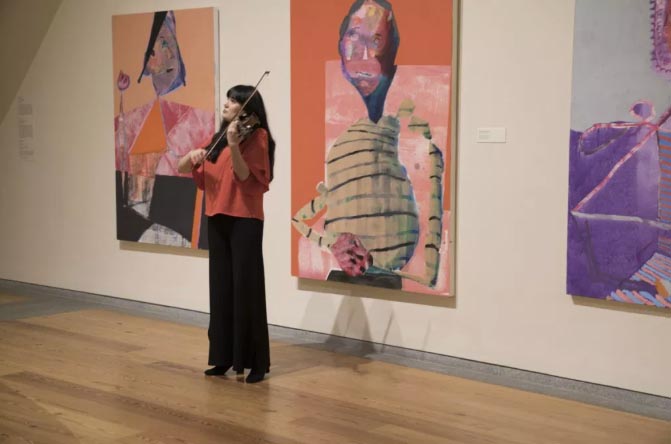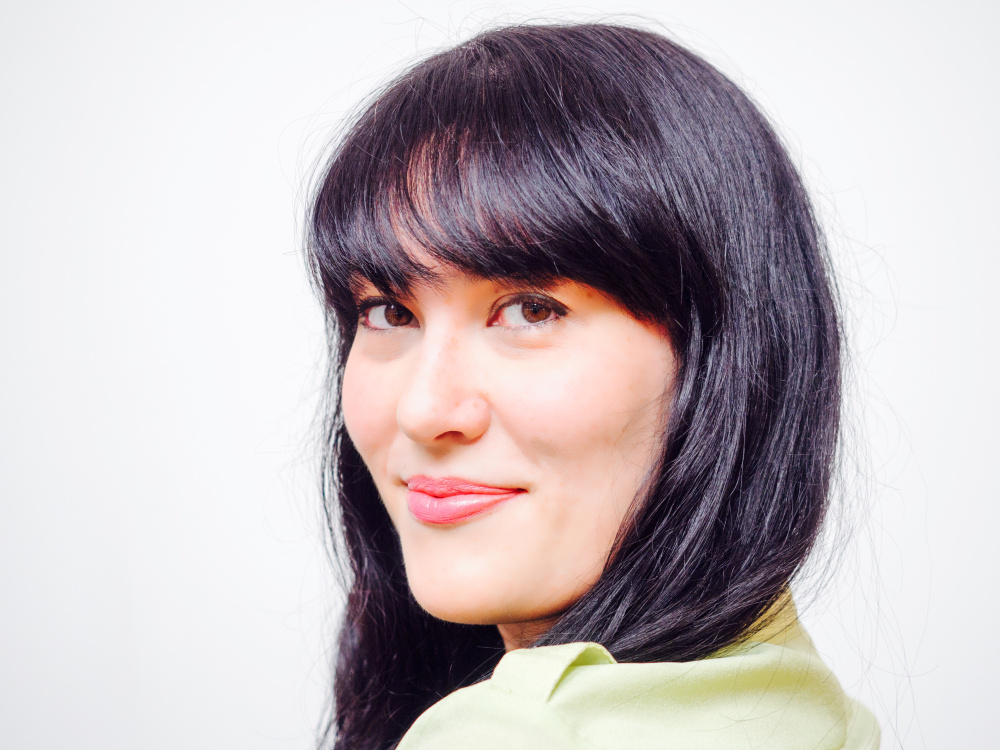During Jennifer Elowitch’s direction, the Portland Chamber Music Festival offered a fine balance of contemporary and established works during its annual summer run, with occasional concerts that leaned more decisively toward new music during the regular concert season. It remains to be seen how her successor, violist Melissa Reardon, will proceed, but the first autumn concert under her direction, on Thursday evening at Space, offered a promising hint.
The program, “Searching for Home,” was devoted almost entirely to contemporary music, most of it written since 2000 by Caroline Shaw, Nico Muhly and Paul Wiancko, composers born in the 1980s. The antiquities, relatively speaking, were a 1997 score by George Benjamin (who was born in 1960), a folk song-based piece by Witold Lutoslawski from 1962 (the composer died in 1994) and a group of Swedish folk songs.
In a way, the star of the show was Wiancko. Apart from having two of his works on the program, one a world premiere, commissioned by the festival, Wiancko performed as a cellist, both as part of Ayane & Paul, a duo with violist Ayane Kozasa, and in a quartet with Kozasa, Reardon and cellist Raman Ramakrishnan. And in his soft-spoken, amusing introductions, it became clear that his own quest for self-discovery – he said he is half Japanese and half Polish – informed the program’s theme and title.
His newest work, “Vox Petra,” for two violas and two cellos, was inspired by the sculptor Isamu Noguchi, whose work is the subject of a current exhibition at the Portland Museum of Art. Reardon had commissioned the piece with the exhibition in mind, starting her tenure with the kind of cross-pollination between arts organizations that promises to keep things lively. Apart from the premiere at Space, the musicians were scheduled to play the work again at the Museum on Friday at 6, 6:30 and 7 p.m.
Wiancko, like many young composers, seems not to feel bound by the dictates of any particular compositional school: Harmonically, texturally and rhythmically, he mixes and matches from among his influences to create vital pieces that avoid the predictable. In the case of “Vox Petra,” which was performed near the end of the program, that means running his attractive themes through acidic modern harmonies, and then recasting them in warm, gently harmonized chorale-like settings, or adorning them with a variety of textural touches – sliding cello lines that give way to fast pizzicato viola writing, for example.
His other piece, “American Haiku” (2014), for viola and cello, closed the first part of the program, and put Wiancko’s own search for identity in high relief. Its musical DNA was wide-ranging, with hints of Japanese folksong jostling with bluegrass, jazz and lush Romanticism, but Wiancko’s gracefully accessible themes bound these styles together, so as episodic as the score seemed at times, it had an internal logic that kept it from seeming fragmented.
Ayane & Paul opened the concert with Shaw’s “Limestone and Felt” (2012), a study in texture, rhythm and contrast, with tightly interlocking pizzicato figures, occasionally punctuated with brief bowed passages in the first movement and brisk, bowed lines, punctuated by short pizzicato blasts, in the second.
Having deftly established its precision and energy in the Shaw, the duo offered an impassioned reading of Muhly’s more brashly harmonized “Duet No. 1: Chorale Pointing Downwards” (2003), which explores dynamic contrasts and a clear sense of dialogue between the viola and cello.
Between the Muhly and Wiancko’s “American Haiku,” Kozasa and Reardon gave a powerful, high-energy account of Benjamin’s “Viola, Viola,” a virtuoso duo that, in fairly short order, explores a broad swath of the viola’s range of color and expressivity.
Ayane & Paul also gave a rich-hued account of Lutoslawski’s “Bucolics,” bringing a lovely, rounded tone to the composer’s recasting of lively Polish folk themes, with hints of Bartók’s approach to similar Hungarian material periodically peeking through. And the full viola and cello quartet closed the concert with a lush traversal of three Swedish folk tunes, arranged by Kozasa and Wiancko for instruments retuned to embrace the droning quality of Swedish folk fiddles.
Allan Kozinn is a former music critic and culture writer for The New York Times who lives in Portland. He can be contacted at:
allankozinn@gmail.com
Twitter: kozinn
Send questions/comments to the editors.




Success. Please wait for the page to reload. If the page does not reload within 5 seconds, please refresh the page.
Enter your email and password to access comments.
Hi, to comment on stories you must . This profile is in addition to your subscription and website login.
Already have a commenting profile? .
Invalid username/password.
Please check your email to confirm and complete your registration.
Only subscribers are eligible to post comments. Please subscribe or login first for digital access. Here’s why.
Use the form below to reset your password. When you've submitted your account email, we will send an email with a reset code.